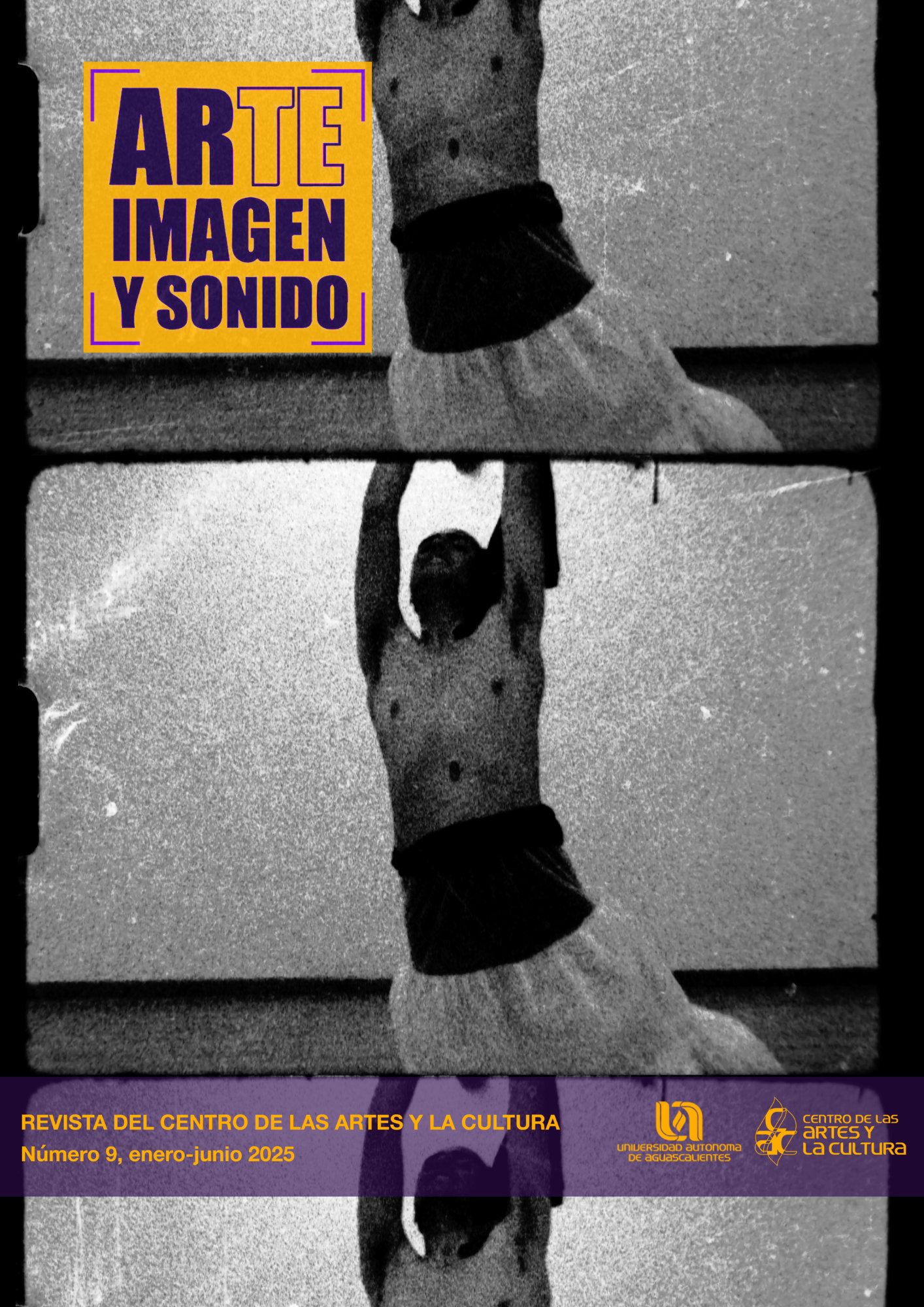Shouting with the body. Performance, art and politics in Latin America
DOI:
https://doi.org/10.33064/9ais6976Keywords:
performance, body, public space, Latin America, feminismAbstract
This text argues that public demonstrations can be understood as political performances since they possess a political and an aesthetic dimension. By appearing in public space, these actions make historically marginalized bodies and voices visible. Thus, performance is presented as a tool that not only challenges social norms, but also transforms the way we perceive the body, gender and public space. To demonstrate this, some Latin American political performances will be analyzed, such as those of the Madres de Plaza de Mayo, LASTESIS’s Un violador en tu camino and the action of the Antigrita in Mexico. It will also be shown that these manifestations have a ritual and therapeutic component that affects both the performer and the audience. In this way, the text claims that performance challenges the boundaries between art and life, representation and reality, artist and audience.
Downloads
References
Antivilo Peña, Julia. Entre lo sagrado y lo profano se tejen rebeldías: Arte feminista latinoamericano. Ediciones desde abajo, 2015.
Butler, Judith y Athena Athanasiou, Dispossession: The Performative in the Political. Polity, 2013.
Butler, Judith, Notes Toward a Performative Theory of Assembly. Harvard University Press, 2018.
Butler, Judith. Marcos de guerra: Las vidas lloradas. Paidós, 2010.
Kaplan, Janet A. “Deeper and Deeper: Interview with Marina Abramovic.” Art Journal 58, no. 2 (1999): 6–21. https://doi.org/10.2307/777944 DOI: https://doi.org/10.1080/00043249.1999.10791935
LASTESIS, Quemar el miedo: Un manifiesto. Planeta, 2021.
Longoni, Ana. “Photographs and Silhouettes: Visual Politics in the Human Rights Movement of Argentina.” Afterall: A Journal of Art, Context and Enquiry, no. 25 (2010): 5–17. https://doi.org/10.1086/657458 DOI: https://doi.org/10.1086/657458
Lozano, Brenda. “La ‘antigrita’ crece el fuego,” El país, 17 de septiembre, 2024. https://elpais.com/mexico/opinion/2020-09-17/la-antigrita-crece-el-fuego.html
Mayer, Mónica. Rosa Chillante: Mujeres y performance en México. Conaculta; Pinto mi raya; avj ediciones, 2004.
Mayer, Mónica, “De la vida y el arte como feminista,” n.paradoxa 8-9. (1998): 47-58. https://www.ktpress.co.uk/pdf/nparadoxaissue8and9.pdf
McGarry, Aidan, Itir Erhart, Hande Eslen-Ziya, Olu Jenzen, y Umut Korkut, eds, The Aesthetics of Global Protest: Visual Culture and Communication. Amsterdam University Press, 2020. https://doi.org/10.2307/j.ctvswx8bm DOI: https://doi.org/10.2307/j.ctvswx8bm
Navarro, Marysa “The personal is political: Las Madres de Plaza de Mayo.” En Power and Popular protest: Latin Amercian Social Movements, editado por Eckstein, S. University of California Press, 1989. DOI: https://doi.org/10.1525/9780520352148-011
Rancière, Jacques, El reparto de lo sensible: Estética y política. Prometeo libros, 2014.
Renzi, Kristen. “Safety in Objects: Discourses of Violence and Value—The ‘Rokeby Venus’ and ‘Rhythm O,’” SubStance 42, no. 1 (2013). http://www.jstor.org/stable/41818957 DOI: https://doi.org/10.1353/sub.2013.0007
Ryan, Holly Eva. “Political Street Art in Social Mobilization: A Tale of Two Protests in Argentina” en The Aesthetics of Global Protest: Visual Culture and Communication, editado por Aidan McGarry, Itir Erhart, Hande Eslen-Ziya, Olu Jenzen, and Umut Korkut, 99–120. Amsterdam University Press, 2020. https://doi.org/10.2307/j.ctvswx8bm.10 DOI: https://doi.org/10.2307/j.ctvswx8bm.10
Taylor, Diana. “Making a Spectacle: The Mothers of the Plaza de Mayo”. En Radical Street Performance, editado por Cohen-Cruz J. Routledge, 1998.
Taylor, Diana y Marcela Fuentes. Estudios avanzados de performance. FCE, 2011.
Taylor, Diana. “‘You Are Here’: The DNA of Performance.” TDR/The Drama Review 46, no. 1 (2002). https://doi.org/10.1162/105420402753555912 DOI: https://doi.org/10.1162/105420402753555912
Valdez, Isabel. “La Gisèle antes de Gisèle Pelicot de la que nació la frase ‘la vergüenza tiene que cambiar de bando’,” El país, 22 de septiembre de 2024. https://elpais.com/sociedad/2024-09-23/la-gisele-antes-de-gisele-pelicot-de-la-que-nacio-la-frase-la-verguenza-tiene-que-cambiar-de-bando.html
Downloads
Published
How to Cite
Issue
Section
License
Copyright (c) 2025 Ariela Wolcovich Konigsberg

This work is licensed under a Creative Commons Attribution-NonCommercial-ShareAlike 4.0 International License.
The copyright of the articles rests with the authors, who by publishing them agree to do so under the Creative Commons Attribution-NonCommercial-NoDerivatives 4.0 International license.













